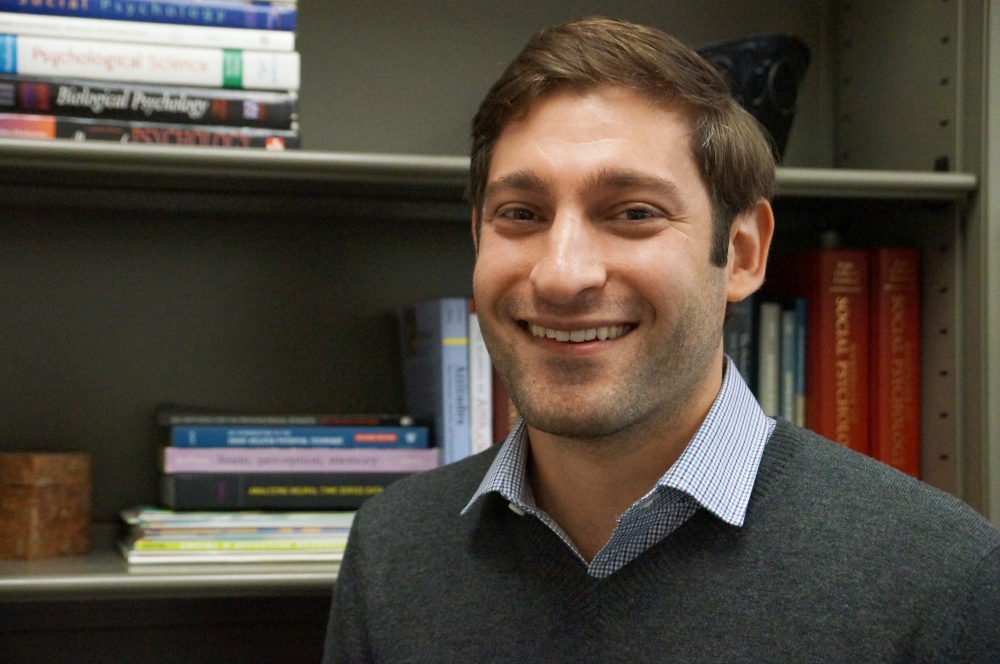
On the Rise
The Association for Psychological Science (APS) has named UC Santa Barbara’s Kyle Ratner a 2015 Rising Star. The designation recognizes outstanding psychological scientists in the earliest stages of their post-Ph.D. research careers for innovative work that has already advanced the field and signals great potential for continued contributions.
“The APS Rising Stars reflect the best and the brightest in the psychological sciences,” said Pierre Wiltzius, Susan & Bruce Worster Dean of Science. “We are thrilled that Kyle has been recognized at this early stage in his career, and we know this is one of many accolades his innovative research will receive.”
Ratner, a newly appointed assistant professor in the Department of Psychological & Brain Sciences, was selected for his work that melds psychological and neuroscience methods to study social perception and evaluation and their implications for intergroup relations and health.
“A lot of what I do examines how the groups that people belong to influence how they make sense of the world around them,” said Ratner. “To study the effects of group memberships, a typical study in my lab will assign research participants to a novel group. We then measure how these participants respond to individuals in their newly assigned group and other groups. I have also studied the effects of established group distinctions, such as race, ethnicity, political party and sexual orientation.”
Ratner is particularly interested in determining how such group memberships affect visual perception and downstream cognitive and affective processes. For example, he has employed EEG, a technique for measuring brain responses, to better understand how people process the faces of ingroup and outgroup members. In other research, he has used fMRI, a specialized form of magnetic resonance imaging, to examine how people process skin color when it is incidental to a person’s group membership.
Although much of Ratner’s research examines how group memberships influence how people perceive others, he is also interested in how being perceived according to one’s group influences mental and physical health. In one study, he explored how black and Latina women’s perceptions of stigmatization related to a biomarker of physical health called interleukin 6.
Since joining the faculty in 2015, Ratner has received a National Science Foundation grant to study how the recent Supreme Court ruling on same-sex marriage affects the psychology and health of gay and lesbian individuals. This work is ongoing.
“I’m just getting started at UCSB, so there is a lot more I hope to investigate,” Ratner said. “My graduate students and I are currently busy running several studies and an award like the Rising Star is validation that we are headed in the right direction.”
Ratner wasn’t the only person affiliated with UC Santa Barbara to be named an APS Rising Star. Another was alumna Lisa Jaremka, now an assistant professor at the University of Delaware. Jaremka, who received her doctorate from UC Santa Barbara in 2011, utilizes a social-psychological approach to understand negative social experiences and their effects on physiology and health.
Fabian Soto, once a Sage Junior Fellow at the Center for the Study of the Mind and a former member of the campus’s Laboratory for Computational Cognitive Neuroscience, was also named a Rising Star. Soto, an assistant professor at Florida International University, studies the neural and computational mechanisms of learning and generalization that mediate object categorization and causal learning.



